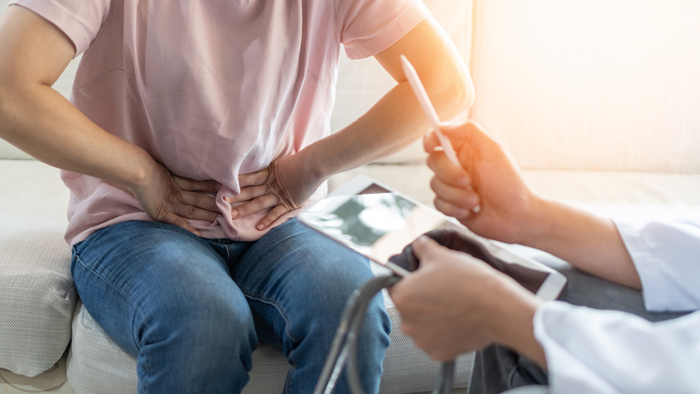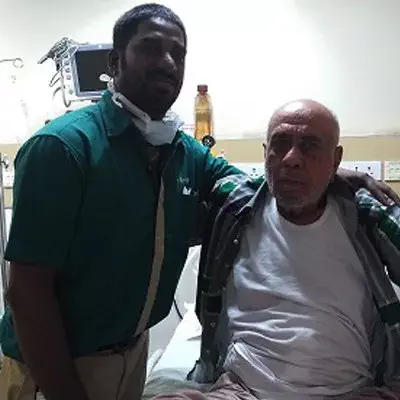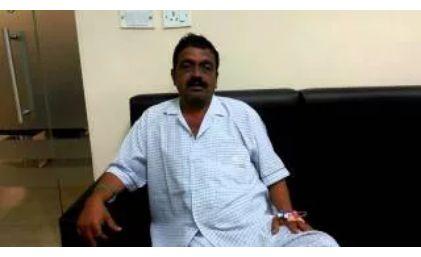Hernia Surgery in Tardeo, Mumbai
A hernia occurs due to a tear in the muscle or tissue which contains an organ. Due to the breakage in this cavity wall, the organ moves out of the respective place and causes discomfort.
A hernia is not immediately fatal, but it should be treated to avoid any major complications as it does not go away on its own.

About Hernia
The protrusion of a whole organ or a part of it through an abnormal opening in the cavity wall leads to a hernia. Mainly, a hernia develops in the area between the chest and the pelvic region.
Inguinal hernia (groin hernia) is the most common type of hernia which occurs in the connecting area of the thigh and groin. Hernia often appears as a lump or a bulge that usually disappears while lying down. You may, however, feel the lump when coughing or bending down.
Types Of Hernias
- Inguinal hernia: Inguinal hernia, or groin hernia, occurs when tissue protrudes in the abdomen region between the groin and upper thigh. This hernia is the most common type of hernia and affects men in higher numbers than women.
- Umbilical hernia: This umbilical hernia bulge can be felt or seen on the belly button. It occurs when a part of intestine tissue protrudes in the abdominal wall at the umbilicus (belly) region.
- Hiatal hernia: It occurs when tissues from the stomach region bulge up into the chest cavity.
- Ventral hernia: It can occur at any region within the abdominal wall region. It usually occurs at the incision sites from previous surgeries that are healed, also known as incisional hernias.
Some other uncommon types of hernias include femoral hernia and epigastric hernia.
Symptoms of Hernias
Symptoms of hernias vary with the type of hernia.
For inguinal hernia, the symptoms include:
- A lump between the groin and upper thigh
- pain and discomfort, especially while performing certain functions like coughing, exercising, etc.
- Heavy sensation in the groin
- Swelling in the testicular region
These symptoms will be more persistent during the daytime in inguinal hernia.
Hiatal hernia usually shows the symptom like:
- Heartburn
- swallowing difficulty
- Abdominal discomfort
- chest pain
For umbilical hernia, the symptoms may include:
- A bulge at the belly button
- Abdominal tenderness, pain, and discomfort
- Nausea and vomiting
- Constipation with fever
- Round abdomen
When Should I Visit A Doctor Regarding Hernia?
If you feel a lump or a bulge, you should immediately seek medical help. Most of the time, the hernia does not go away by itself. The doctor needs to diagnose the type of hernia you have and the determined treatment required, and the type of hernia surgery.
Hernia can turn fatal if it goes untreated. It can lead to issues in blood flow to the strangulated tissue. You should seek immediate medical assistance if your hernia bulge turns reddish or dark purplish, which denotes strangulation.
Request an appointment at Apollo Hospitals, Tardeo, Mumbai.
Call 1860 500 2244 to book an appointment
Risks Factors of Hernia
Experts have not yet determined the exact cause of hernia, but the risk factors involved in the development of hernia include:
- Obesity
- Pregnancy
- Previous open appendectomy or any other related surgery
- Chronic obstructive pulmonary diseases (COPD)
- Smoking
- Collagen vascular disease
- Peritoneal dialysis
- Heavy weight lifting
- A congenital condition developed before birth
- Ascites (fluid in the abdomen)
- Aging factor
Diagnosis And Treatment Of Hernia
Hernia diagnosis starts with a physical examination by the doctor. As a lump or bulge is the most prominent symptom of hernia, it is examined during the initial visit to a doctor.
The doctor may check your medical history and compile a medical questionnaire related to the issues you are facing to determine the type of hernia. Few imaging tests can help with a clear understanding of hernia, particularly a computed tomography scan, magnetic resonance imaging, or an abdominal ultrasound. For a hiatal hernia, your doctor may even do an endoscopy.
Hernia requires surgery for treatment. It can be a laparoscopic surgery or traditional open surgery, as per the diagnosis and doctor’s recommendation.
Conclusion
An early diagnosis, lifestyle changes, and treatment can minimize the symptoms of hernia. However, there is only one way to treat hernia effectively, and that is surgery. Depending upon the type of hernia, your doctor can suggest the best treatment and hernia surgery options.
Hernia can occur in men, women, and children. However, the rate of cases indicates that it occurs in men more commonly.
Usually, a hernia does not go away until treated with surgery.
Most people take around three days to recover from the hernia surgery completely. However, strenuous activities are not recommended until after about six months.
Symptoms
Our Patient Speaks
My son was treated at the Apollo Spectra Hospital, and I have had a very good experience here. The doctors at the hospital were very helpful. The nursing staff at the hospital took very good care of my son and proved to be very helpful. All the services at the hospital were very well organised and taken care of, including the billing service, which was done very fast, as well as the security at the hospital premises. The hospital premises were also very clean and sanitised.
Dad Mohamed
General and Laproscopic Surgery
Hernia
A Mumbai-based patient was suffering from Hernia. He had consulted a lot of doctors and went to a few hospitals but wasn't satisfied. He then decided to get treated at Apollo Spectra and was happy with the treatment he received, services offered and more. Listen to his experience as he narrates his account with Apollo Spectra.
Superlative Treatment for Hernia at Apollo Spectra
Hernia
Our Top Specialities
NOTICE BOARD
CONTACT US
CONTACT US
 Book Appointment
Book Appointment




.svg)
.svg)
.svg)
.svg)








